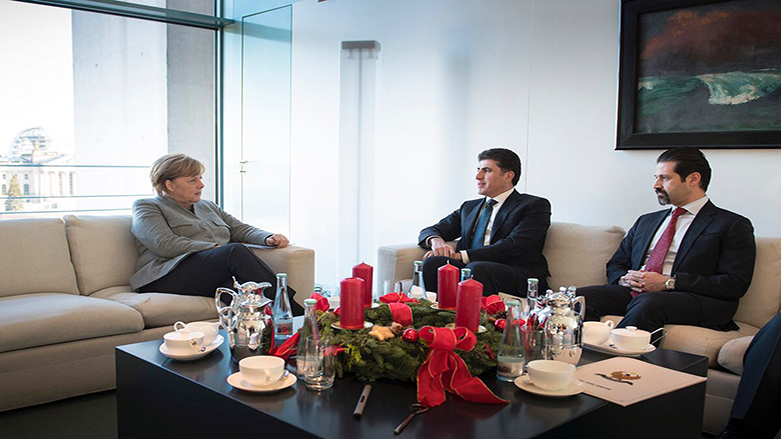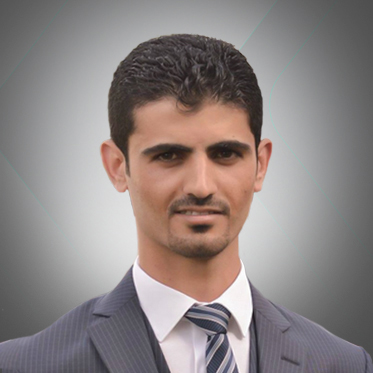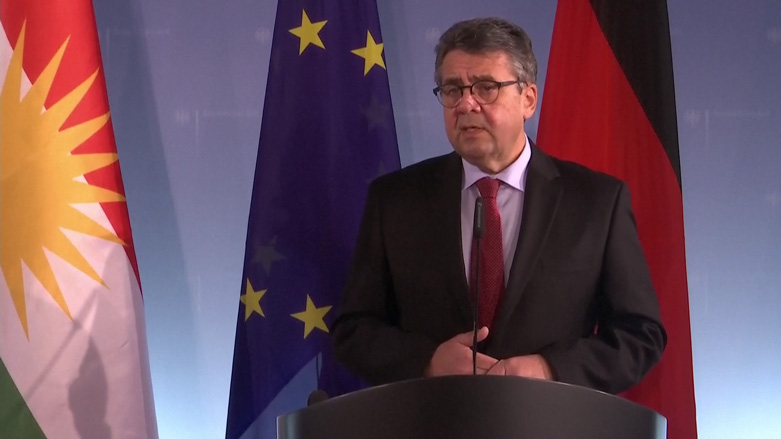Germany supports constitutional rights of Kurdistan Region

ERBIL, Kurdistan Region (Kurdistan 24) – Germany’s Chancellor on Monday expressed her country’s support for the constitutional rights of the Kurdistan Region.
In a meeting with a Kurdistan Regional Government (KRG) delegation headed by Prime Minister Nechirvan Barzani, German Chancellor Angela Merkel expressed Berlin’s support for the Kurdistan Region’s constitutional rights, a KRG statement read.
In the meeting with Barzani, also attended by Deputy Prime Minister Qubad Talabani and the Kurdistan Presidency’s Chief of Staff, Fuad Hussein, Merkel said that Germany supports the rights and existence of the Kurdistan Region enshrined in the Iraqi constitution.
Merkel highlighted ties between Germany and the Kurdistan Region, and how Berlin remains committed to assisting the Region, especially regarding the fight against terror, the statement added.
The German Chancellor praised the KRG’s attitude, its willingness to resolve issues with the Iraqi government through dialogue, and its respect for the Federal Court’s rulings. Merkel also expressed her support for dialogue between Erbil and Baghdad to begin as soon as possible.
Prime Minister Barzani thanked Germany for its support and assistance to the Kurdistan Region, stating that the Region abides by the Iraqi Constitution and is ready to resolve its disputes with Baghdad and start negotiations on the basis of the constitution. The Iraqi government has yet to respond to such calls.
Barzani emphasized the need for allied nations, such as Germany, to encourage Baghdad to initiate talks, and to help facilitate a dialogue.
The statement added that the delegation reiterated that bringing change to the KRG and Kurdistan remains the government’s top priority and would affect all sectors. The delegates asked for Germany’s support and collaboration in helping the KRG implement its reforms and ensure stability in the region.
German Foreign Minister Sigmar Gabriel last month urged the parliament to extend the military mission training Peshmerga fighters in the Kurdistan Region of Iraq, warning a withdrawal of German troops would raise the risks of a civil war in the country.
Germany is a member of the US-led coalition against the Islamic State (IS) which has trained and supplied Peshmerga forces with military equipment, including German MILAN anti-tank system.
Gabriel, who will soon step down following his Social Democrat party's losses in the Sep. 24 elections, was asking the incoming administration, particularly the Greens, not to stand against an extension of Germany’s military mission in Iraq.
There are currently 150 German troops in the Kurdistan Region training Peshmerga fighters in the fight against IS. Recent clashes between Peshmerga and Iraqi Forces raised concerns in Germany about the future of its mission in the country.
“The more international groups are active there, the lower the chance of a new escalation,” Gabriel said.
“A withdrawal would be the wrong signal to send to the parties [involved in] the conflict as if we were resigned to accepting the danger of a new civil war,” the German official told reporters.
He mentioned that the government in Berlin had met with various parties in Iraq and the Kurdistan Region, urging them to find a political solution through peaceful means.
“We hope that the very fragile ceasefire holds and that a political solution can be achieved. A new civil war in Iraq would bring unbelievable suffering to this country, which has already suffered too much as a result of political conflicts in recent years,” German Foreign official added.
About 93 percent of those who participated in the vote in the Kurdistan Region and disputed territories favored full secession from Iraq. The Sep. 25 referendum was opposed by Baghdad, neighboring countries, and the US.
Weeks after the referendum, Iraqi Prime Minister Haider al-Abadi ordered forces, along with the Iranian-backed Shia Hashd al-Shaabi militias, to take control of the oil-rich Kirkuk province and other disputed territories.
After several intense clashes between both sides, Abadi declared a ceasefire on Oct. 27.
The German cabinet has asked the Bundestag to vote to extend the mission by three months to give the next administration time to review all foreign missions.
Editing by Nadia Riva

